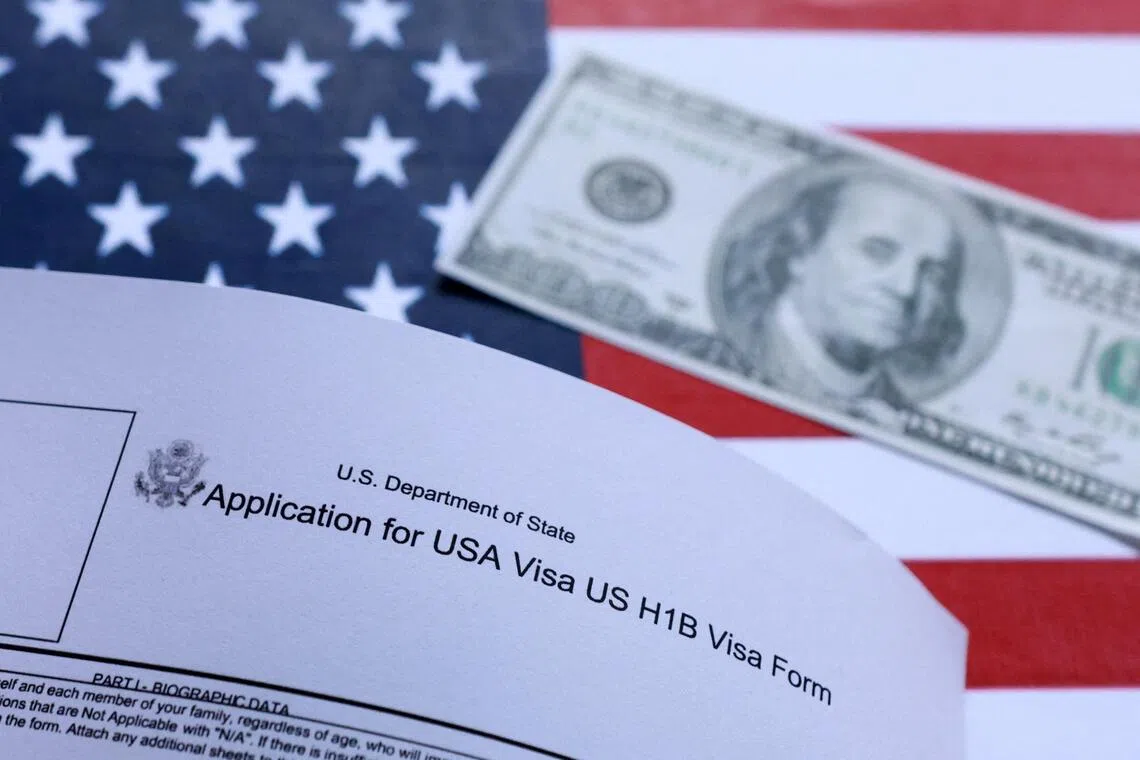College grads, some workers in US spared new US$100,000 H-1B visa fee
Sign up now: Get ST's newsletters delivered to your inbox

For more than a decade, the highly sought-after H-1B visas – capped at 65,000 annually, plus 20,000 for applicants with advanced degrees – have been awarded through a lottery.
PHOTO: REUTERS
WASHINGTON – College graduates on student visas and certain foreign workers already living in the US will not have to pay a US$100,000 (S$130,000) filing fee for H-1B visas, the Department of Homeland Security said in updated guidance outlining how the new rules will work.
The clarification, announced this week by US Citizenship and Immigration Services (CIS), applies to foreigners who hold US visas and are already in the country, including recent graduates and certain employees.
The new H-1B fee, unveiled on Sept 19 and implemented just two days later, blindsided employers and visa applicants.
The abrupt change left companies and foreign workers unsure who would be required to pay and raised fears that those travelling abroad could be charged upon returning to the US.
This week’s guidance adds detail about how the policy will be carried out, including assurances that travel or a change in employer will not trigger additional payments.
The guidance did not specify the types of visa holders who will qualify for the H-1B payment exemptions. A USCIS spokesperson declined to comment beyond the published guidance.
The confusion has rippled through industries that rely on foreign talent. Walmart – the largest US retail employer of H-1B visa holders, with about 2,400 on staff – temporarily halted job offers for candidates requiring one of the visas, Bloomberg reported on Oct 21, citing people familiar with the matter. The hiring freeze underscores how deeply the uncertainty had disrupted workforce planning.
Ms Susanna Teel, a global mobility manager in the tech sector, said employers have been eager for clarity and are increasingly looking at every possible option to fill vacancies for which they had relied on H-1B visa holders.
“There is still a lot of talking and I think there is still a little bit of ‘we need to take a pause’,” she said. “We need to rethink how we are going to do this.”
For more than a decade, the highly sought-after H-1B visas – capped at 65,000 annually, plus 20,000 for applicants with advanced degrees – have been awarded through a lottery.
The Trump administration in September proposed reshuffling that process to favour higher-paid and senior-level positions, a move officials say will reduce programme abuse in the tech sector.
Business groups have pushed back, arguing that the new fee and related rule changes could worsen labour shortages in industries struggling to fill specialised roles.
The US Chamber of Commerce and a coalition of healthcare providers, labour unions, schools and religious employers have filed legal challenges to the fee proclamation. Bloomberg


